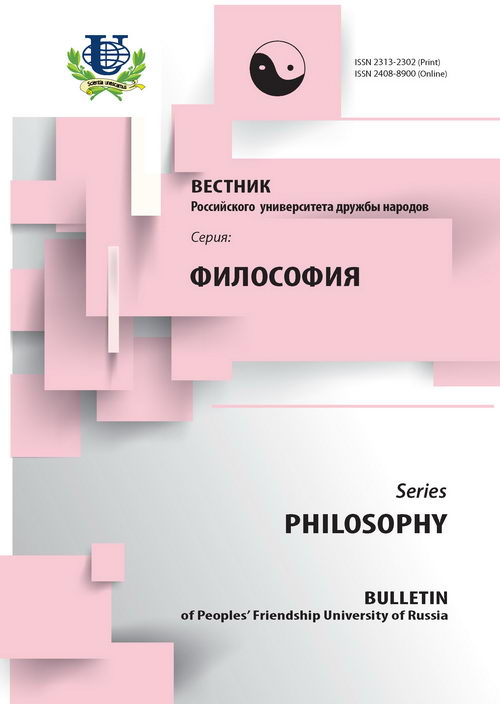What Makes «Communication» Possible?
- Authors: Pavlenko AN1
-
Affiliations:
- Peoples' Friendship University of Russia
- Issue: No 2 (2011)
- Pages: 25-34
- Section: Articles
- URL: https://journals.rudn.ru/philosophy/article/view/11474
- ID: 11474
Cite item
Full Text
Abstract
The article presents sufficient space for a thorough analysis of the conceptual issues of the Communicative Programme (the CP) developed by E. Husserl, L. Wittgenstein, K.-O. Apel, and J. Habermas who attached great importance to the fundamental role of communication in epistemological justification.
The CP analysis carried out in the article is based on a number of models worked out to provide insight into the following two arguments of the CP proponents: 1) the CP statements are justified through their universal validity; 2) There is no pure individual in the communicative society (CS). It is demonstrated that the former argument leads to a vicious circle, while the latter one - heads to overt absurdity in terms of logic.
The CP analysis carried out in the article is based on a number of models worked out to provide insight into the following two arguments of the CP proponents: 1) the CP statements are justified through their universal validity; 2) There is no pure individual in the communicative society (CS). It is demonstrated that the former argument leads to a vicious circle, while the latter one - heads to overt absurdity in terms of logic.
Keywords
About the authors
A N Pavlenko
Peoples' Friendship University of Russia
Email: hphilosophy@mail.ru
Кафедра онтологии и теории познанияФакультет гуманитарных и социальных наук; Российский университет дружбы народов; Peoples' Friendship University of Russia
References
Supplementary files















